He mistrusted most of his ministers and yet was incapable of carrying out the task of ruling the vast Russian empire alone.
Determined that Russia should not be left out in the scramble for colonial possessions, Nicholas encouraged Russian expansion in Manchuria. This provoked a war with Japan in 1904. The resulting Russian defeat led to strikes and riots. In January 1905 the army in Saint Petersburg shot at a crowd demanding radical reforms. Opposition to the tsar grew and Nicholas was forced to grant a constitution and establish a parliament, the Duma.
The outbreak of World War One in 1914 temporarily strengthened the monarchy, and Russia allied to France and Britain against Austria-Hungary and Germany. In mid-1915 Nicholas made the disastrous decision to take direct command of the Russian armies. From then on, every military failure was directly associated with him.
With Nicholas often away, Alexandra took a more active role in the government. Russia was suffering heavy losses in the war, there was high inflation and severe food shortages at home, which compounded the grinding poverty most Russians already endured. German-born Alexandra soon became the focus of discontent, as did her confidante, the mystic Rasputin, who had been at court since 1905 and had gained great influence through his apparent ability to treat the haemophilia of Alexis, the heir to the throne.
In December 1916, Rasputin was murdered by a group of disaffected nobles. Then in February 1917, widespread popular demonstrations began in the capital, Petrograd (as Saint Petersburg was renamed in 1914). Nicholas lost the support of the army and had no alternative but to abdicate. A shaky provisional government was established. The tsar and his family were held in various locations, eventually being imprisoned in Yekaterinburg in the Ural Mountains.
In October 1917, the Bolsheviks overthrew the provisional government. Following a harsh peace treaty with Germany in March 1918, Russia descended into civil war. On 17 July 1918, as anti-bolsheviks approached Yekaterinburg, Nicholas and his family were executed. This was almost certainly on the orders of the bolshevik leader Vladimir Lenin.
The figure shows the tsar with the campaign uniform of colonel of the Regiment of Lancers of the Guard (Regiment of his Highness the Empress Aleksandra Fyeodorovna of Uhlans of the Guard) in military maneuvers in 1910 in the environs of Moscow.

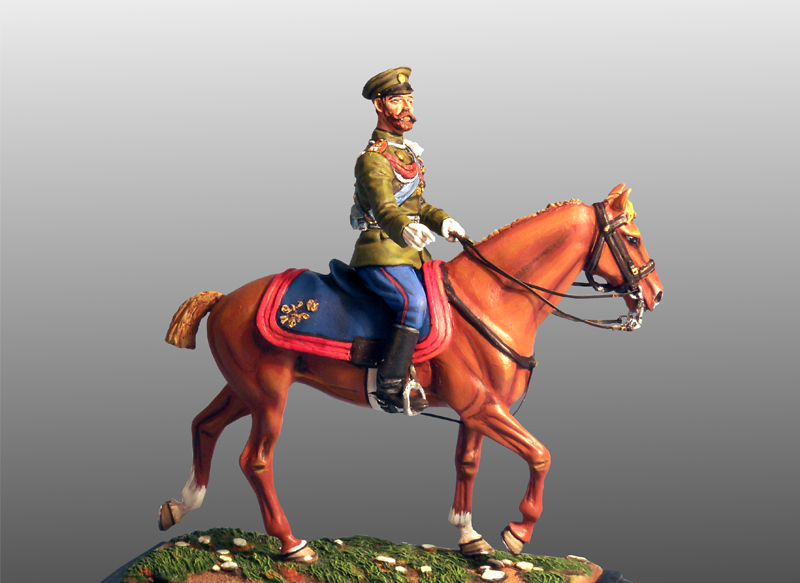
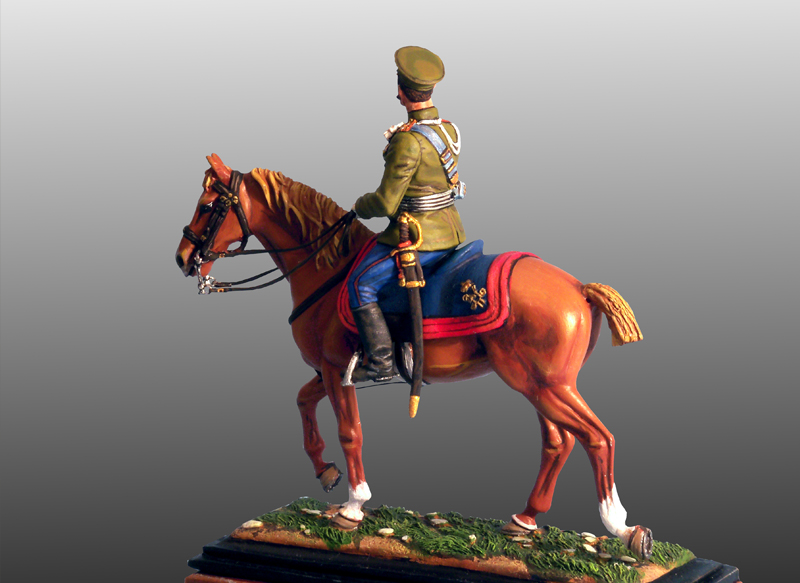
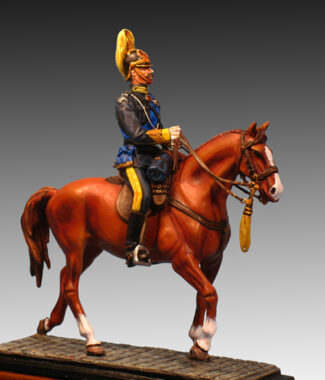
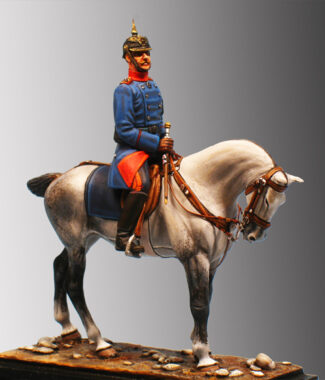
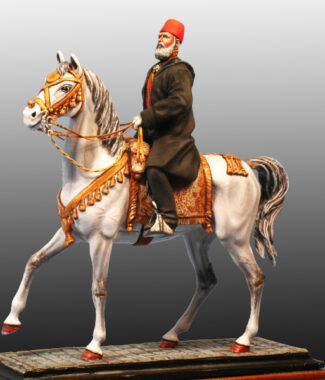
Reviews
There are no reviews yet.